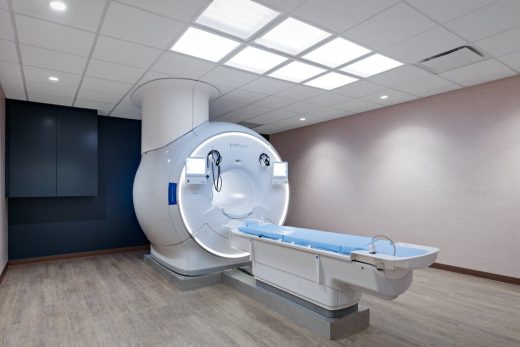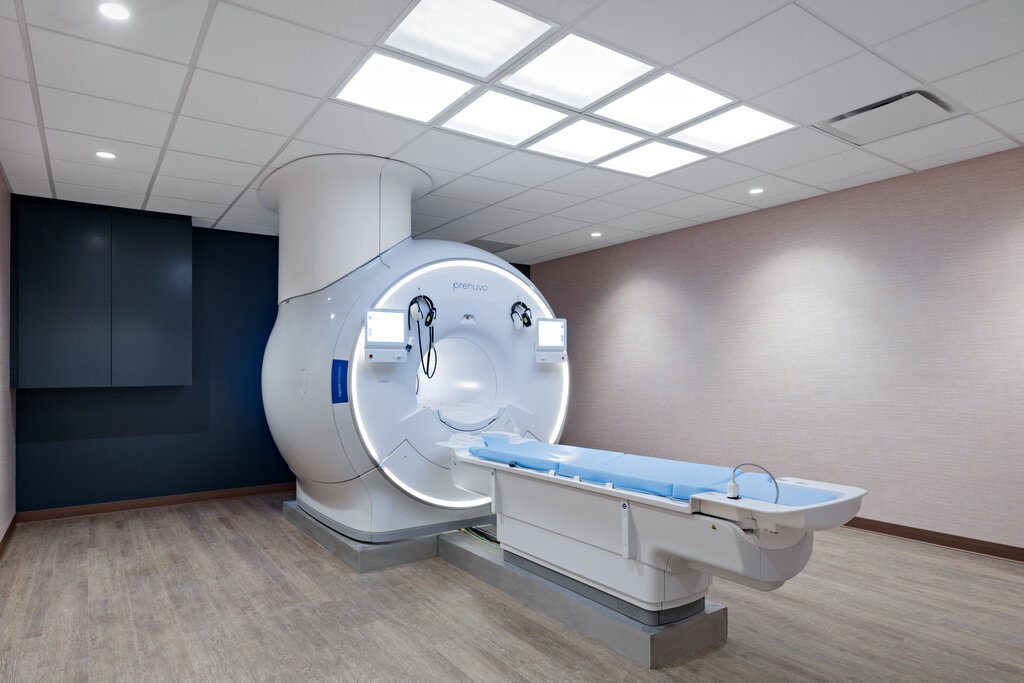What is Prenuvo? How an MRI became a luxury status symbol
In January of this year, TV presenter Maria Menounos received some of the worst news of her life. A full-body scan revealed that she had developed stage II pancreatic cancer. Though the diagnosis was devastating for Menounos, the incident was actually a blessing for Prenuvo, the company that offered her the full-body MRI.
Prenuvo detects more than 500 medical conditions, from life-threatening issues (cancer and aneurysms) to slower-moving symptoms that could be mitigated with lifestyle changes. While some MRI scans are fairly commonplace, Prenuvo’s full-body scan, which essentially performs several MRI scans at the same time, costs roughly $2,500 and is not covered by most insurance. To promote itself, the company has adopted an aggressive social media strategy, courting influencers and turning its service into a status symbol. Over the past few months, an increasing number of celebrities from Kim Kardashian to Tori Spelling have been posting photos of themselves in grey scrubs, sitting next to the cylindrical machine.
When a celebrity like Menounos receives a shocking diagnosis—perhaps news about a health issue missed in run-of-the-mill CT or MRI scans—it can persuade everyday consumers that rather than a luxury, Prenuvo is a lifesaving service. Scan enough influencers and you’re bound to find some sickness. Find a dire enough illness that they can publicize, and Prenuvo’s strategy can print money.
Celebrities have long endorsed medication and medical devices. On my Instagram feed, White Lotus star Meghann Fahy and singer, reality star, and entrepreneur Jessica Simpson have promoted the nasal spray Flonase. Clearblue has sponsored myriad pregnancy announcements, including those of The Hills star Audrina Patridge, Snooki from Jersey Shore, and Orange Is The New Black actor Danielle Brooks. The newly slim figure of many celebrities is largely responsible for Ozempic’s dramatic rise in popularity.
While in most cases a company might contact a celebrity to forge a partnership, Prenuvo claims that stars and influencers often reach out to the company to get the scan in exchange for posts on their feed. “The vast majority of high-reach voices who mention us publicly contacted us proactively out of personal interest in experiencing the scan,” says Alina Ioani, Prenuvo’s head of strategic partnerships.
Still, The New York Times reported that the company has courted celebrities, including model Lily Aldridge and designer Zac Posen, during New York Fashion week. The strategy seems to be working. In 2022, the company raised $70 million from the likes of 23andMe CEO Anne Wojcicki, supermodel Cindy Crawford, and iPod creator and Nest cofounder Tony Fadell. There are currently nine Prenuvo locations in the U.S. and Canada, but the company plans on opening 11 more in the coming months.
Although celebrities like Kardashian are featured on Prenuvo’s Instagram page, when asked about which influencers have given the product the biggest boost, Ioani says she’s unable to share personal patient information and can’t reveal any details.
Only 3.5% of all money spent in the U.S. healthcare system goes toward preventive care. “[What] we are doing at Prenuvo requires a systemic change of mindset in how we approach healthcare,” Ioani says, referring to the fact that when patients get the MRI they can proactively treat problems that come up, instead of waiting only seeking help when they get sick. An investment in screening tools could also reduce medical costs and save a lot of pain down the road for some people.
Still, it’s difficult not to see Prenuvo’s positioning as both a luxury service and a lifesaving necessity as a little confusing. The approach is certainly a smart way to market a service that insurance companies do not cover. Showcasing stories like Menounos’s is a way to make whole-body preventive screenings seem essential.
Several doctors have pointed out that, although the scans have detected early illness, they also regularly generate false positives leading to a great deal of anxiety and more tests for some patients. In addition, organizations including the FDA and the American College of Preventive Medicine don’t recommend these screenings for every patient. But for some, the relief of getting a clean bill of health post-scan is worth it. After all, can you really put a price on your peace of mind?
(21)



